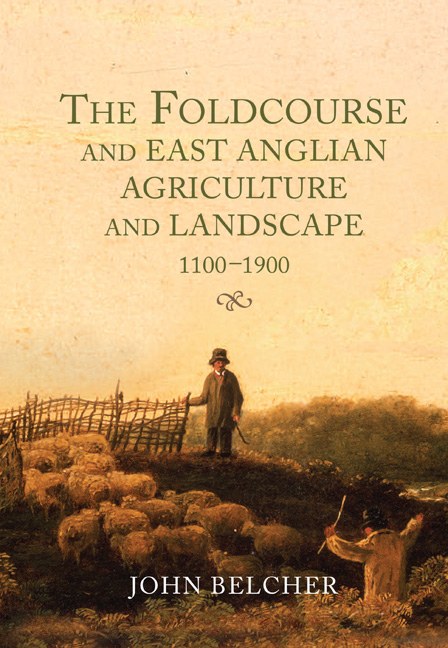Book contents
- Frontmatter
- Contents
- List of Illustrations
- Acknowledgements
- List of Abbreviations
- Introduction
- Chapter 1 The Contexts of the Foldcourse
- Chapter 2 Manors, Rights and Customs of the Foldcourse
- Chapter 3 The Medieval Foldcourse
- Chapter 4 The Late Medieval Evolution of Foldcourse Husbandry
- Chapter 5 The Agricultural Practice of Foldcourse Husbandry
- Chapter 6 The Foldcourse and Improvement
- Conclusions
- Glossary
- Bibliography
- Index
- Garden and Landscape History
- Frontmatter
- Contents
- List of Illustrations
- Acknowledgements
- List of Abbreviations
- Introduction
- Chapter 1 The Contexts of the Foldcourse
- Chapter 2 Manors, Rights and Customs of the Foldcourse
- Chapter 3 The Medieval Foldcourse
- Chapter 4 The Late Medieval Evolution of Foldcourse Husbandry
- Chapter 5 The Agricultural Practice of Foldcourse Husbandry
- Chapter 6 The Foldcourse and Improvement
- Conclusions
- Glossary
- Bibliography
- Index
- Garden and Landscape History
Summary
Foldcourse husbandry is usually seen as a regional version of sheep–corn husbandry, a regime that was common in a number of light-soil regions of England in need of the sheep fold to maintain soil fertility. But why was foldcourse husbandry exclusive to East Anglia? The answer to this question and the explanation for the differences between the foldcourse and other regimes such as sheep–corn husbandry cannot be framed in monocausal terms, as foldcourse husbandry was a complex system of interactions between the environment, social structures and agrarian practices.
The pre-conditions for the foldcourse can be summarised as follows. The foldcourse was a feature of areas of marginal and often acidic soils in East Anglia, soils that are often interdigitated over short distances in a mosaic pattern. It operated in regions with common fields within which the individual holdings of the tenants were scattered. The precise nature of the common fields was not critical, but the regimes characteristic of the foldcourse are perhaps best described as irregular collections of furlongs, rather than well-defined fields. The foldcourse was associated with a nucleated pattern of settlement, but one that was often a looser agglomeration of polyfocal settlements that became more nucleated with time. Its absence in regions such as the Sandlings, where the environment would support the foldcourse regime but where dispersed settlement and clustered holdings were characteristic, is a demonstration of the importance of the supporting social structures.
The ownership of a foldcourse was not inevitably attached to every manor, and in those multi-manorial townships examined there was a connection between the possession of a foldcourse and an estate that appears in the Domesday Book. This would suggest that the origin of the foldcourse pre-dates the Norman Conquest. This view is supported by the inclusion of the duty of ‘foldsoke’ in Domesday Book, the entries for which are confined to Norfolk and Suffolk. The inclusion of foldsoke in Domesday may also be connected to questions of lordship in the region and indicative of the need to incorporate the great numbers of freemen and sokemen into the new tenurial regime by whatever means were available.
- Type
- Chapter
- Information
- Publisher: Boydell & BrewerPrint publication year: 2020



